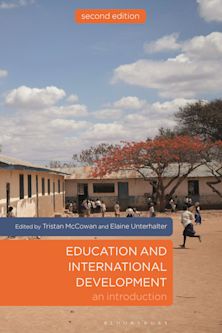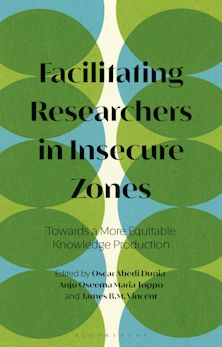- Home
- ACADEMIC
- International Development
- Development Policy and Practice
- Science and Technology for Development
You must sign in to add this item to your wishlist. Please sign in or create an account
Description
How can science realize its potential and help us tackle global inequality, environmental change and crippling poverty? How can more appropriate technologies be developed for those most in need? Science has long promised much -- new crops, new medicines, new sources of energy, new means of communication -- but the potential of new technologies has frequently bypassed the poorest people and the poorest countries.
In Science and Technology for Development, James Smith explores the complex relationship between society and technology, and the potential for science to make sustainable contributions to global development. Drawing on case studies from Africa, Latin America and Asia, the author argues that we need to think carefully about science and development, otherwise the perpetual promise of future technological breakthroughs may simply work to distance meaningful development from the present.
This book is essential reading for all students of development.
Table of Contents
Acronyms
Introduction
1. Rethinking Technology for Development
2. The Institutionalisation and Internationalization of Science
3. Making Technology Work for the Poor?
4. Governing Technologies for Development
5. Conclusion: Can Technology Transform Development?
Glossary
Bibliography
Product details
| Published | 15 Oct 2009 |
|---|---|
| Format | Ebook (PDF) |
| Edition | 1st |
| Extent | 161 |
| ISBN | 9781848132023 |
| Imprint | Zed Books |
| Series | Development Matters |
| Publisher | Bloomsbury Publishing |
About the contributors
Reviews
-
This is one of the rare books I have read which brings out the complex web of relationships among science, technology and development with great clarity and originality.
M S Swaminathan, Member of Parliament (Rajya Sabha), Chairman, M S Swaminathan Research Foundation
-
This is a book that has long been needed. It is short but succinct. In simple language it shows the reader that there is no substitute for careful analysis of the local context before making interventions. I shall certainly use it in my own courses and training materials but I imagine it will be extensively used in overseas universities and related institutions.
Norman Clark, The Open University

ONLINE RESOURCES
Bloomsbury Collections
This book is available on Bloomsbury Collections where your library has access.



































